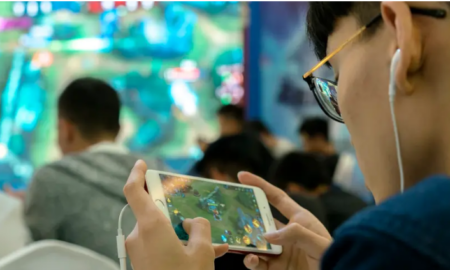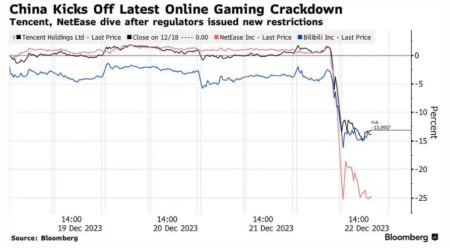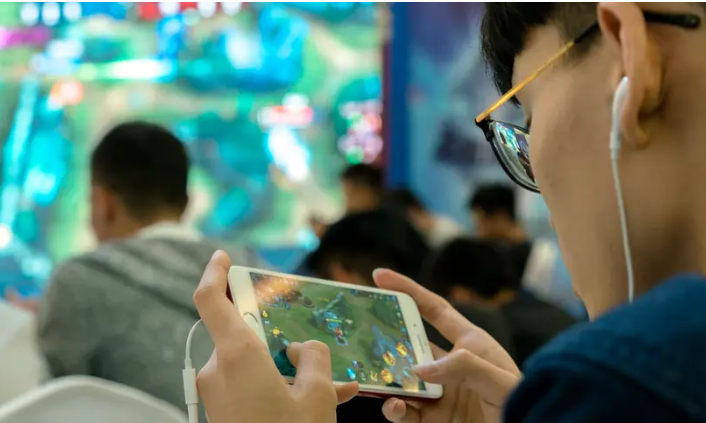On December 22, the State Press and Press Administration of China released a draft document entitled “Measures for the Management of Online Games.” New restrictions could greatly affect the entire gaming industry, both in China and in general.
China is against online games. How will this affect the gaming industry?

The main theses of the project were the following points:
- It is prohibited to reward players for logging into the game daily, for making their first purchase, or for making several transactions in a row;
- You are prohibited from using any form of digital item auction;
- All developers must set a limit for replenishing an in-game account, and also warn about it in the user agreement;
- Players should receive pop-up warnings in case of “waste of funds”;
- Streamers should not be able to receive large donations;
- It is prohibited to use mechanics for randomly distributing items if the game is accessible to minors;
- Players must register only under their real name, and the servers of the development company must be located in China.
This is not the final version at this time – discussions are ongoing. But according to 86Research analyst Charlie Chai, the document is already at an advanced stage of approval, so you shouldn’t expect deep changes.
Consequences

First of all, it is of interest how exactly the restrictions will affect already released games. It can be assumed that they will now be divided into Chinese and global versions. Here we can recall the example of World of Warcraft, when a separate version was created for China. But the difference here is that no one is stopping Chinese companies from entering the West, which means they don’t need partner companies – the only question is technical execution.
In addition, some companies will probably find a way to circumvent the new set of restrictions, as they did before. For example, the miHoYo company – they have already legally divided the assets by creating the HoYoverse company. She began distributing miHoYo products globally, thereby circumventing previous restrictions.
But this is not the most pleasant outcome. Although recent studies have shown that the Chinese authorities’ attempts to tighten restrictions have led to little success – this time they are aimed more at companies than at ordinary players.
As a result, many Chinese companies will have to strengthen their presence in the Western market. In recent years, the Chinese gaming industry has already begun to gradually emerge from its shadow, but now this procedure will have to be accelerated in order to compensate for the lack of income caused by new restrictions. As a result, monetization, which the Chinese authorities are trying so hard to limit in the country, can only increase in global versions – there are no restraining laws there yet.
It is equally likely that companies will simply reinvent monetization systems. Here we can recall the 2017 scandal with loot boxes in Star Wars Battlefront II. Then Electronic Arts had to abandon boxes with random content, which did not stop them from coming up with other ways to make money – a battle pass and paid cosmetics.

On the other hand, now in China there is a whole culture of monetization – it is much easier for players to invest real money in the game than to spend a lot of time getting things in-game. All these measures are aimed only at combating online games, as indicated in the title of the document. Consequently, there is a possibility that the market will become less focused on online projects. In this case, the volume of single-player games will increase, creating a new round of development in the Chinese gaming industry.
Another possible consequence could be a direct impact on the gaming industry. This proposal immediately had an impact on the shares of gaming companies. Thus, Tencent shares sank by 16%, and NetEase by 28%.
The problem here is that these companies’ influence extends far beyond themselves and the Chinese gaming industry. The same Tencent owns many Western studios either partially or completely. If their shares fall even more and do not return to their previous values, this will affect the rest. Especially at small studios in which Chinese giants have invested.
Bottom line
It so happens that in recent years, Chinese gaming companies have taken root in the video game industry much stronger than it might seem.
Restrictions that should help ordinary players could result in either serious trouble for the global gaming industry, or the invention of new ways to monetize games, or a significant increase in the influence of Chinese companies in the Western market. Small companies, in this case, will have to resort to developing single-player games more often, which will have a positive impact on the entire gaming industry.
